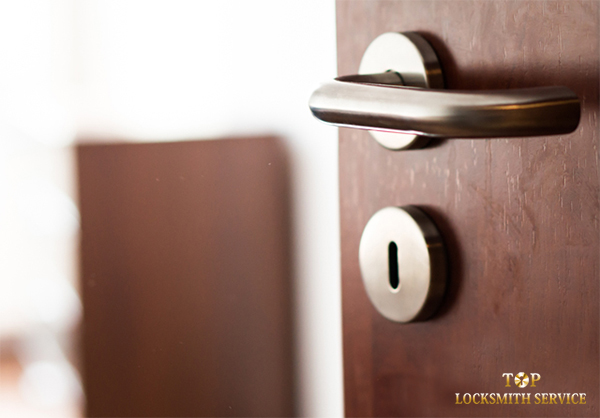The residential locksmith experts at Top regularly perform installation, maintenance, and repair services for Maryland homeowners – and in the process, deal with a massive variety of different types of locks. Here a brief guide to the most common types of residential locks that we deal with in our industry.
Deadbolts
These popular lock types are the bread and butter of home security. Their strength is measured based on a grading system, and they come in single or double cylindered varieties that have keyed cylinders on one, or both sides of the door respectively. Single cylinder locks are more common, but double cylinders are better options for some locations. Other people opt for jimmy proof deadbolts, a simple but uniquely strong lock construction that protects people from the lock bypass method of jimmying.
Door Knob Locks
These locks are fit inside door knobs and don’t offer fantastic security, as they are vulnerable to applied force, but they are often used for interior use in areas where people may want to seal a room from a pet or child, or enforce privacy.
Cylindrical Lever Locks
These locks are commonly used in residential and commercial settings, but are more common in commercial settings. These locks are much easier to operate than knob based locks, leading to easy egress. They aren’t ideal for exterior doors, as they are also vulnerable to forced entry attacks.
Mortise Locks
These locks are similar to cylindrical lever locks but are more secure. They are often present in older homes, and are made up of complicated and intricate hardware. The key parts of mortise locks include the threaded lock cylinder, and the engaging/retracting lock cam. Mortise locks are some of the most strong and reliable traditional lock technology available anywhere.
Euro Cylinder Locks
These locks are more often used in Europe, as you probably deduced. THey are often used in interior doors or patio doors, and are not an ideal security measure for exterior doors because they can be damaged over time, and their lock bodies can even be snapped. However, their ease of installation makes them a good choice for areas where security isn’t a concern, and easy answers are sought out.
Smart/Electronic Locks
This new technology often combines deadlocks with either BlueTooth/Internet based technology or a transponder token carried on body, allowing for remote access/programming, logged entry/exit guides, and instant opening/locking upon the entrance or exit towards or from your home. They offer fantastic practical benefits – however, one needs to have ulterior security layers in place in the event of blackouts/outages that may affect the operation of electronic/web-based components.
